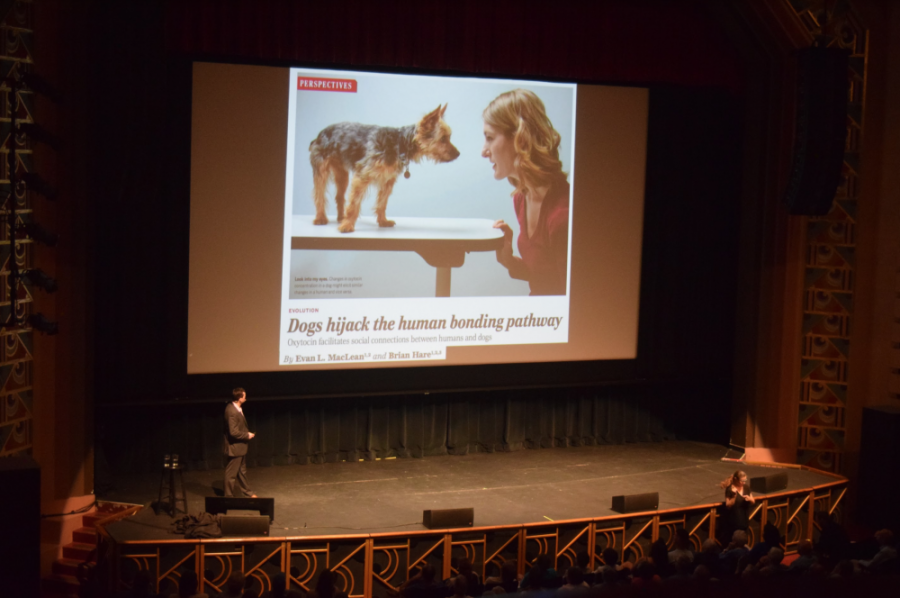The College of Social and Behavioral Sciences is hosting Animalities, a lecture series that talks about “what animals teach us about being human” throughout October.
The series will take place over four Thursdays in October and will demonstrate research on each animal. The free and open event will start at 6:30 p.m. at the Fox Tucson Theatre in downtown.
RELATED: Program gives Tucson community chance to dive into UA curricular
The College of Social and Behavioral Sciences has been hosting this lecture series since 2013. The theme changes every year and has ranged in theme, including Happiness and Chaos. This year, they have invited four speakers from the University of Arizona to talk about the relationship between animals and humans.
Animalities was kicked off last week with a lecture titled The Thinking Dog that undertook the relationship between humans and “man’s best friend.”
María Zedeño, a professor in the School of Anthropology, will give her own talk. Zedeño’s talk, the Personhood of Bison, took place on Oct. 10 and informed the public on the relationship between hunters and bison. This research is led by the UA and aims to incorporate the needs and protocols of Native Americans. The connections of bison with Native Americans have existed for a millennium and the connections have existed around the world.
“There is a very intimate and profound relationship between a hunter and their prey,” Zedeño said. “Prey is not a passive animal waiting to be killed by the hunter but rather a very active entity with its own personality and behaviors.”
The Hunting for Herring lecture will take place on Oct. 17 and is led by Alison Deming, an English professor at the UA. The lecture tackles the importance of herring, the history of weirs and how herring has been important for people in the northeast. However, the climate crisis has had a huge impact on these animals and the tradition of fishing.
“The animal world is so important, not only ‘sexy’ animals, like dogs and horses, but animals like herring also have an important role in the ecosystem,” Deming said. “[With this lecture] people will come to see that there is more to the animal story.”
RELATED: Four UA women in STEM selected for inaugural class of AAAS ambassadors
The lecture series will close with Łįį’ (Navajo Horse) as Healer and Educator, a lecture that will be given by Kelsey Dayle John, a postdoctoral research associate in the American Indian Studies Program, on Oct. 24. The lecture will address the importance of horses to the Navajo people and aims to help people understand the Navajo culture and respect indigenous knowledge.
“It’s both a personal and political story,” Kelsey said. “It touches on different concepts and gives people the framework to question their research. It’s taking the definition that we think we know about Navajo people and pushing and expanding our ideas even further.”
Follow Ana Teresa Espinoza on Twitter








